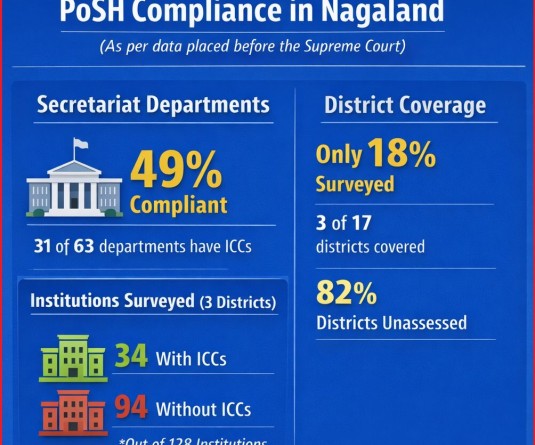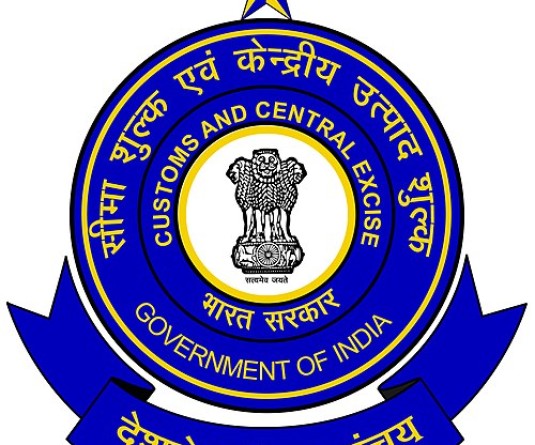Seed exchange participated by villages of Chizami, Jakhama, Rusoma, Patsho Nokeng Shamator, Dulhami, Phuhgi and New Phor from the communities of Chakhesang, Yimkhuing, Pochury, Angami and Khiamniungan.
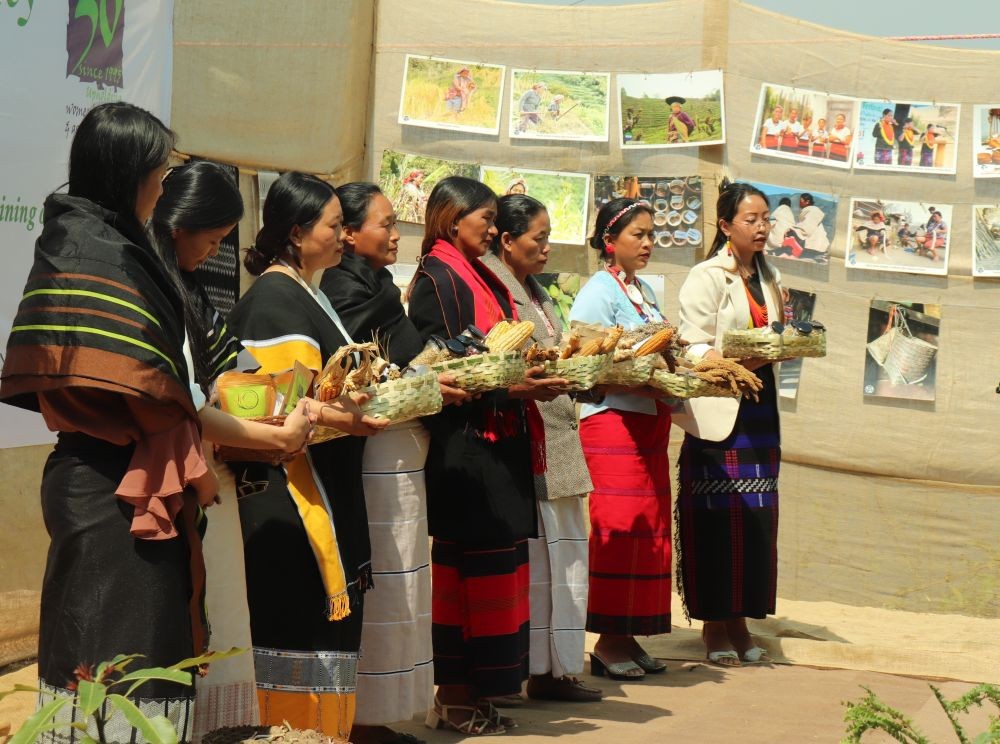
Chizami, March 8 (MExN): “Biodiversity is integral to our culture and identity, and it is deeply connected to the struggles of our people.
Unlike in many places where conservation efforts lead to the displacement of indigenous populations from their ancestral lands, the Naga people possess inherent rights over their territories,” stated members of Meramvong Conservation Programme, Thanamir village, Kiphire at the 16th Biodiversity Festival held at NEN Resource Centre, Chizami village, Nagaland.
“However, this right comes with a responsibility, which means we must practice restraint. Our ancestors instilled in us the values of respect and dignity, emphasizing sustainable harvesting and reminding us that biodiversity sustains us,” they added.
North East Network (NEN) hosted its 16th Biodiversity Festival under the theme, “Nurturing Health, Well-Being, and Resilience: Sustaining Our Future Together,” on March 6 and 7, an update received here stated.
This year, also commemorating NEN’s 30th anniversary, brought together 487 participants over two days, including students from educational institutions, farming communities from five districts of Nagaland (Kohima, Phek, Kiphire, Meluri, and Shamator), representatives from NGOs from Nagaland, Assam, Meghalaya, Manipur, and West Bengal, community-based organizations, women’s organizations, and representatives from various government departments and research institutions.
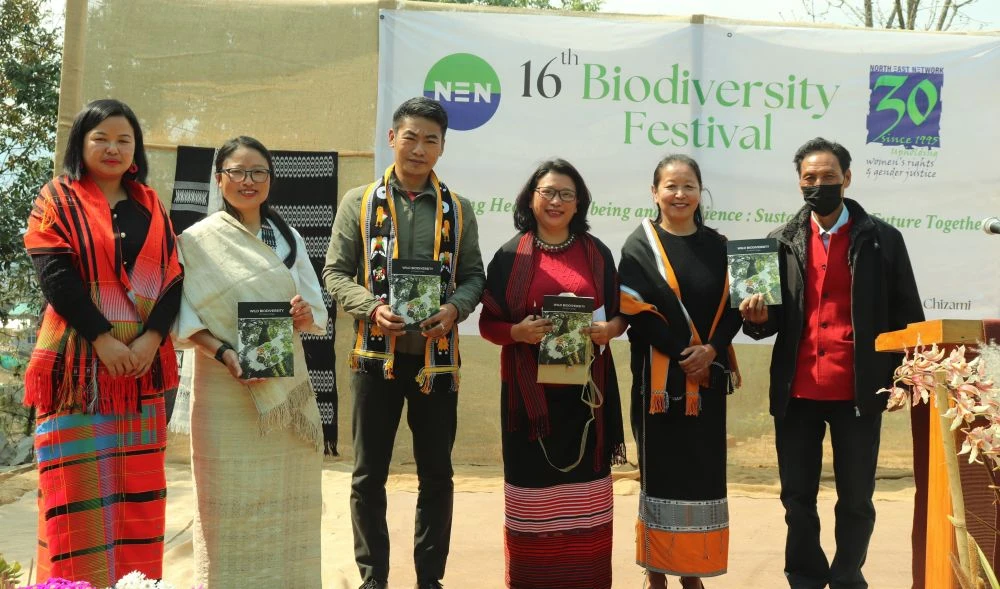
The festival explored the connections between biodiversity, local food systems, health, and indigenous traditional knowledge, highlighting the vital role of women in preserving this knowledge and promoting sustainable practices.
On day one, the festival highlights focused on immersive learning experiences for students from various educational institutions. Through interactive sessions, students gained valuable insights into local food systems, value addition, soil and composting techniques, indigenous seed systems, biodiversity-based arts and crafts, medicinal plant biodiversity, and indigenous healing systems.
Students also participated in a “My Dream Village” miniature model-making competition, showcasing their visions for sustainable communities. Chizami Students’ Union and Mesulumi Government High School secured first and second prize, respectively, while Sumi Students Union and EYP Students Union received consolation prizes.
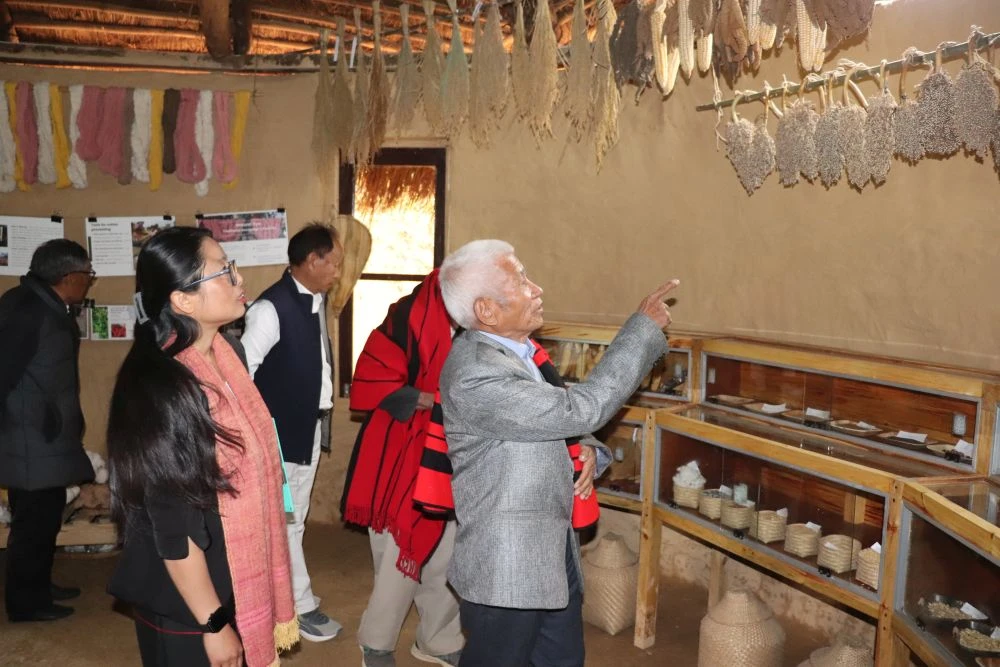
Other highlights included the inauguration of a Food Sovereignty Cradle by Lhiruu Thopi and KZ Mero, senior-most citizens of Chizami village, which was marked by traditional blessings and the offering of indigenous seeds to the Cradle. This initiative establishes a dedicated space for learning, knowledge exchange on food and seed sovereignty, and traditional knowledge systems.
At the NEN’s 30th anniversary celebratory programme, Seno Tsuha recounted NEN’s journey in Nagaland, sharing experiences of challenges, triumphs, and lessons learned in promoting women’s health and well-being. She expressed gratitude to the community for their unwavering support and emphasized the need to uphold integrity, justice, dignity, and trust.
KZ Mero stressed the importance of embracing diversity and inclusivity for peaceful coexistence. Anurita Hazarika, NEN’s Executive Director, underscored Nagaland’s deep connection to biodiversity as a way of life and the crucial intersection of gender and environment.
Recognizing women as key users of biodiversity, she emphasized the necessity of their inclusion in all decision-making processes, ensuring their voices are heard and valued. She called for the recognition of women’s knowledge and power, advocating for their rightful place in decision-making spaces and peace building. Hazarika affirmed NEN’s continued commitment to working with youth and women in biodiversity conservation.
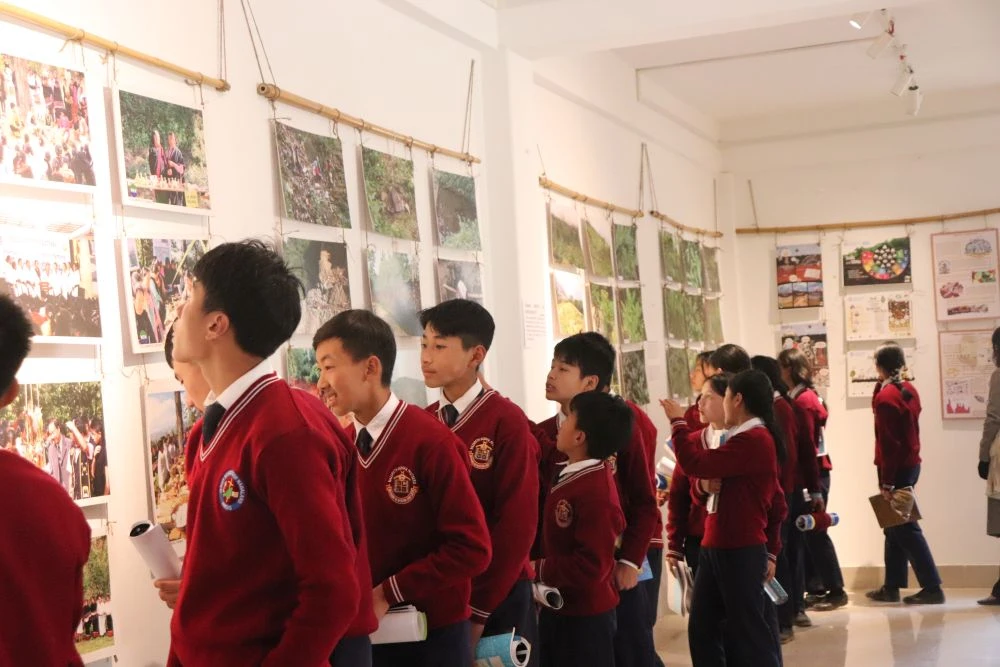
Chief Conservator of Environment, Forest & Climate Change, and Member Secretary of the Nagaland State Biodiversity Board, Supongnukshi Ao, IFS addressed the day two, where he emphasised the critical need for collaborative work. He highlighted Nagaland State Biodiversity Board’s mandate and interdepartmental approach, and commitment to community engagement. He pointed that central government policies alone are insufficient, advocating for localized solutions informed by indigenous knowledge.
Ao expressed deep concern over climate change’s impact on Nagaland’s agrarian communities, noting decreasing rainfall and rising temperatures. He warned of the threat to traditional farming practices and livelihoods, urging communities to safeguard water, land, and forests. He further highlighted the loss of biodiversity due to unsustainable resource use, calling for collective action to preserve Nagaland’s natural heritage. He encouraged active community participation in government-led conservation initiatives.
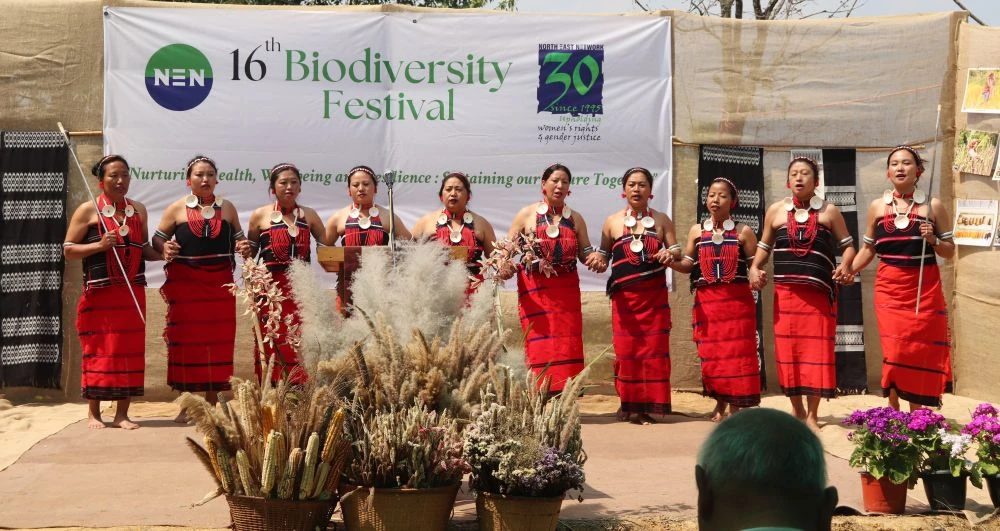
Dr Roshmi Goswami, NEN’s Founding Member, stressed biodiversity’s vital link to Naga identity, rooted in forests, land, and water. She recounted NEN’s 1994 origins with Monisha Behal, focusing on women’s health and shared visions. Dr Goswami expressed gratitude to the Chizami community for their unwavering support, acknowledging their pivotal role in NEN’s journey. She stressed that the sustainability of community life is inextricably linked to the health of the land, and therefore communities must re-think and re-evaluate development narratives, questioning whether they serve the interests of the few or the broader community. She asserted that biodiversity is not merely a resource but a way of life, demanding respect and upholding principles of justice and peaceful coexistence.
The day two event also featured the release of the booklet “Wild Biodiversity of Chizami Village” by Chizami Biodiversity Management Committee was released by Supongnukshi Ao. Seed exchange was participated by villages of Chizami, Jakhama, Rusoma, Patsho Nokeng Shamator, Dulhami, Phuhgi and New Phor from the communities of Chakhesang, Yimkhuing, Pochury, Angami and Khiamniungan; cultural performances, exhibitions and demonstrations, Earth Market showcasing and selling of food, local seeds, food, arts, crafts, and jewelry. A community potluck lunch was prepared by women from Chizami, Phor, Pathso Nokeng, Shamator and Rusoma.



